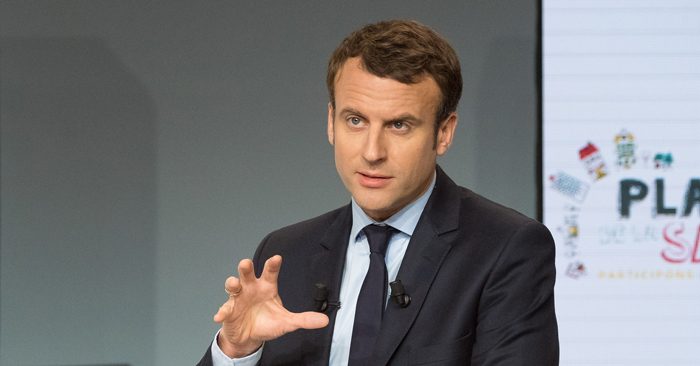People of faith in France, across Europe and beyond will welcome the result of Sunday’s final presidential election, for at least four reasons.
Centrist candidate Emmanuel Macron has just achieved a decisive result – 65 per cent to 35 per cent as this is filed – against his opponent Marine Le Pen of the hard-right National Front.
First, there will be no immediate upheavals as are now occurring in Britain after last year’s Brexit vote, in the USA after incoming President Donald Trump executed a range of bizarre decisions, or in Turkey after the April referendum gave its president unprecedented powers.
Macron, a former investment banker and ex-economy minister in the Hollande Government, has promised gradual reform to the current economic and political system. He will continue virtually all current trade and military treaties within the framework of the European Union.
Second, his movement is committed to addressing the needs of the disadvantaged in France and beyond. In an interview with Crosslight as the votes were being counted, member of the Assembly – the national parliament – for Nîmes, Françoise Dumas, said assisting the disadvantaged is the election outcome she is most eagerly anticipating.
“The priority will be to increase the number of people with good jobs in order to rectify current levels of inequality and poverty,” Ms Dumas said. “This vote gives Mr Macron a strong mandate to deliver this.”
Macron has targeted a reduction in the unemployment rate from above 10 per cent where it has been for the last four years, to below 7 per cent.
Third, there has been no continuation of the surge to the populist right, which commentators had predicted following last year’s Brexit vote in the UK, the defeat of a referendum in Italy and Trump’s surprise election in the USA.
This means borders will not be shut to migrants or refugees. The current movement of European citizens from one country to another will continue. There will be no forced closures of mosques and no expulsion of residents on the basis of their religious adherence.
The emphatic 65 per cent to 35 per cent result offers no comfort for the extreme right. That contrasts with President’s Hollande’s 51.6 per cent to 48.4 per cent win five years ago, and former President Nicolas Sarkozy’s 53.1 per cent to 46.9 per cent victory in 2007.
It contrasts also with Malcolm Turnbull’s win 50.36 per cent to 49.64 per cent in Australia last year, and to Donald Trump’s victory with 46.1 per cent of the vote to Hillary Clinton’s 48.2 per cent.
This result follows that in the Netherlands in March when incumbent centre right Prime Minister Mark Rutte was comfortably returned despite predictions that a Trumpian surge would sweep hard right candidate Geert Wilders into office.
Fourth, Macron has a solid mandate to work towards reforming and strengthening the European Union rather than abandoning it as Le Pen had intended to do, and as Britain is now actually doing.
In his acceptance speech, Macron said he had heard “the rage, anxiety and doubt that a many have expressed” and promised to spend his presidency “fighting the forces of division that undermine France”. He vowed to “guarantee the unity of the nation and defend and protect Europe.”
Other positives to emerge from the election campaign include that democracy is alive and well. Qualifying as a French presidential candidate requires the signatures of at least 500 elected officials – national Assembly members, senators, regional and general councillors and mayors – from at least 30 different regions.
Despite this onerous requirement, eleven candidates qualified, from across the left-right political spectrum, including two women. Their ages ranged from 39 to 75, and there were several from outside the mainstream political parties.
Macron is one of the latter having established his party – En Marche! which translates as On the Move! – only in April last year.
Many challenges and questions remain. Macron’s movement does not yet have a single member of the national parliament. Elections for the Assembly in June and for the Senate in September will determine whether En Marche! achieves a majority, a workable minority – in Coalition with other parties – or is stymied.
Will Macron be able to fill the void in global leadership following the recent departures of so many established leaders? One year ago, the world was led by President Barack Obama of the USA, Prime Minister David Cameron of the UK, Chancellor Angela Merkel of Germany and France’s President François Hollande.
Merkel faces a re-election battle in September. The others have all retired. Whether Macron has the mettle of his predecessors Charles de Gaulle or Giscard d’Estaing as a global statesman remains to be seen. He certainly comes to the job with a huge vote of support from his citoyens. He also comes to office with the prayers of people of all faiths – in France and elsewhere.
Alan Austin is a freelance journalist and former Crosslight writer living in France.
Image: Mutualité Française/Flickr



Comments are closed.